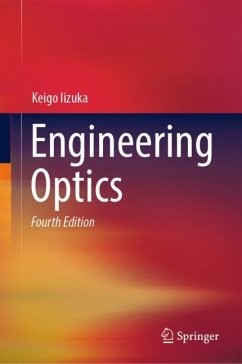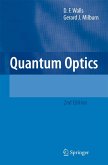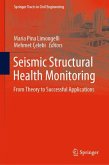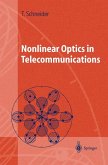The expanded 4th edition of this classic optics text is aimed at those wishing to apply their knowledge of optics to engineering problems, and provides a sound introduction to the basic principles of optics for engineering students. It describes fundamental material including Fourier optics, diffraction theory, geometrical optics, and lenses, and goes on to cover important topics such as optical signal processing, holography, tomography, optical communication, electro- and acousto-optic devices, integrated optics, 3D imaging and optical distance measurement.
Comprehensively updated throughout, this new edition features a major additional section on optical measurement techniques, including chapters on scanning methods, structured light pattern projection methods, depth measurement using a microscope, coherent as well as incoherent interferometry and distance mapping using CCD cameras.
Fully illustrated, the text includes numerous practical examples, together with worked exercises and end-of-chapter problem sets.
From the reviews of the third edition:
"It is intended not only for the physics and engineering students who want to acquire the basic principles of optics, but also for researchers and engineers who use optics in their research and/or professional activity. For all these people, this book will be a valuable source of scientific information. ..."
- Optica Applicata
"Iizuka managed to intermingle lively and exciting ideas, humorous and enthusiastic presentations, eye-catching and tasteful cartoons, significant backbone optics materials and even some frontier state-of-the-art optics information. I did not have a dull moment reading this book. It has a very attractive style: educational, yet entertaining...."
- IEEE Circuits and Devices Magazine
"I found this book most helpful in demonstrating an effective teaching approach that was especially suited for engineering students. ... The examples and problem sets at the each chapter are also helpful to students and instructors .... Overall, it is a delightful book, and I would definitely recommend it to students starting out on the path of exploring optical technologies and educators who want to enlighten young engineers fascinated by optics."
- Optics and Photonics News
Comprehensively updated throughout, this new edition features a major additional section on optical measurement techniques, including chapters on scanning methods, structured light pattern projection methods, depth measurement using a microscope, coherent as well as incoherent interferometry and distance mapping using CCD cameras.
Fully illustrated, the text includes numerous practical examples, together with worked exercises and end-of-chapter problem sets.
From the reviews of the third edition:
"It is intended not only for the physics and engineering students who want to acquire the basic principles of optics, but also for researchers and engineers who use optics in their research and/or professional activity. For all these people, this book will be a valuable source of scientific information. ..."
- Optica Applicata
"Iizuka managed to intermingle lively and exciting ideas, humorous and enthusiastic presentations, eye-catching and tasteful cartoons, significant backbone optics materials and even some frontier state-of-the-art optics information. I did not have a dull moment reading this book. It has a very attractive style: educational, yet entertaining...."
- IEEE Circuits and Devices Magazine
"I found this book most helpful in demonstrating an effective teaching approach that was especially suited for engineering students. ... The examples and problem sets at the each chapter are also helpful to students and instructors .... Overall, it is a delightful book, and I would definitely recommend it to students starting out on the path of exploring optical technologies and educators who want to enlighten young engineers fascinated by optics."
- Optics and Photonics News
From the reviews of the third edition:
"...contains 15 richly illustrated chapters and very well selected exercises and problems. It is intended not only for the physics and engineering students who want to acquire the basic principles of optics, but also for researchers and engineers who use optics in their research and/or professional activity. For all these people, this book will be a valuable source of scientific information. ..." Optica Applicata
"Iizuka managed to intermingle lively and exciting ideas, humorous and enthusiastic presentations, eye-catching and tasteful cartoons, significant backbone optics materials and even some frontier state-of-the-art optics information. I did not have a dull moment reading this book. It has a very attractive style: educational, yet entertaining...."
IEEE Circuits and Devices Magazine
"I found this book most helpful in demonstrating an effective teaching approach that was especially suited for engineering students. ... The examples and problem sets at the each chapter are also helpful to students and instructors ... . Overall, it is a delightful book, and I would definitely recommend it to students starting out on the path of exploring optical technologies and educators who want to enlighten young engineers fascinated by optics." (Li Qian, Optics and Photonics News, November, 2008)
"...contains 15 richly illustrated chapters and very well selected exercises and problems. It is intended not only for the physics and engineering students who want to acquire the basic principles of optics, but also for researchers and engineers who use optics in their research and/or professional activity. For all these people, this book will be a valuable source of scientific information. ..." Optica Applicata
"Iizuka managed to intermingle lively and exciting ideas, humorous and enthusiastic presentations, eye-catching and tasteful cartoons, significant backbone optics materials and even some frontier state-of-the-art optics information. I did not have a dull moment reading this book. It has a very attractive style: educational, yet entertaining...."
IEEE Circuits and Devices Magazine
"I found this book most helpful in demonstrating an effective teaching approach that was especially suited for engineering students. ... The examples and problem sets at the each chapter are also helpful to students and instructors ... . Overall, it is a delightful book, and I would definitely recommend it to students starting out on the path of exploring optical technologies and educators who want to enlighten young engineers fascinated by optics." (Li Qian, Optics and Photonics News, November, 2008)








